Hustling in Holland: Representing the Rural in Hip-hop and ‘Hollands Hoop’
The Dutch television series Hollands Hoop aired its final season on February 9. Comparing the series with hip-hop from the popular Dutch music collective ‘Boerenjongens’, we see how both rap and series depict the rural ‘underdogs’ of the Netherlands, hustling their way through the countryside.
Guns, cows and hay bales, cannabis plantations in barns, gangsters riding on tractors, a green Ferrari cruising through the fields: these are a few of the images from the music video of the 2018 popular hip-hop track Boerenjongen ("Farmer’s boy") by the eponymous Dutch rap formation. Similar images feature in the successful Dutch television series Hollands Hoop, which aired its final season on February 9 this year. Although the rap group and series differ in many respects, it is striking how their representation of the Dutch countryside aligns. In the music video as well as in the series, similar strategies and references are used to depict the rural area as a slow, traditional, anachronistic space, as opposed to the often urbanized representation of drug-related crime, which is signified by speed, agility, contemporariness, and rawness.
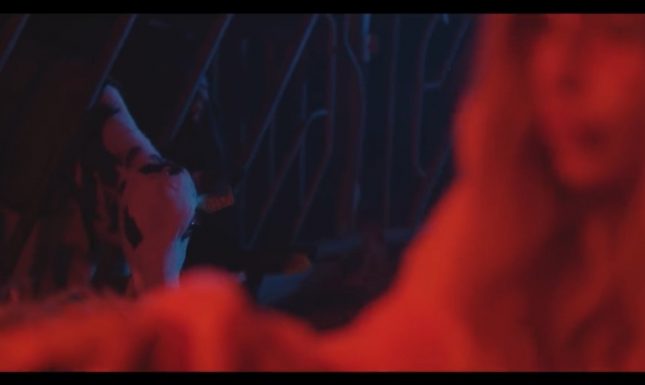
This contrast is not only shaped visually, but also textually. Hip-hop artist D-Double presents himself as a farmer ("ik ben een farmer"). He raps how he, as a "farmers boy, can rake you",[1] in which harken refers not only to the seemingly innocent farmer’s tool of the rake, but also to the metaphor ‘harken’ which means ‘doing cocaine’ in Dutch street slang. Also, the phrase seems to be used to indicate that he will rake in all the profits of his drug trade. D-Double uses his lines to elaborate on an idea of a homely, small-scale Dutch countryside, but he also contrasts it with raging crime: he "sells cocaine to the neighbors",[2] and "sat with dealers in the classroom". The featuring artist on the track, hip-hop artist Pietju Bell, contrasts the old-fashioned expletive "potverdikkeme" with contemporary street slang to underline his authenticity and his authority (“niemand die komt zoals ik”). Hollands Hoop’s protagonist Fokke Augustinus refers to his problems with drug criminals throughout the whole series as "trammelant", another example of an archaic Dutch expression that almost demands a nostalgic reading. The title of Hollands Hoop is in itself polysemic in this regard, as it refers both to the name of the historical heritage farm ‘Hollands Hoop’ (representing the calm, the right), and to the weed produced and traded there in the narrative of the TV show (the raw, the criminal). The series episodes carry the same kind of ambiguous titles, inspired by traditional Dutch expressions or folk songs (‘Woeste Wieken’, ‘In een groen groen knollenland’ and ‘Onder de groene zoden’), which get a slightly different meaning in the light of the growing of weed and the murders on other drug traders that happen throughout the series, to say the least. Through transporting a stereotypical view of the urban drug lords to the rural areas of the Netherlands, these cultural products estrange their viewers from the urban focus they expect within such stories.
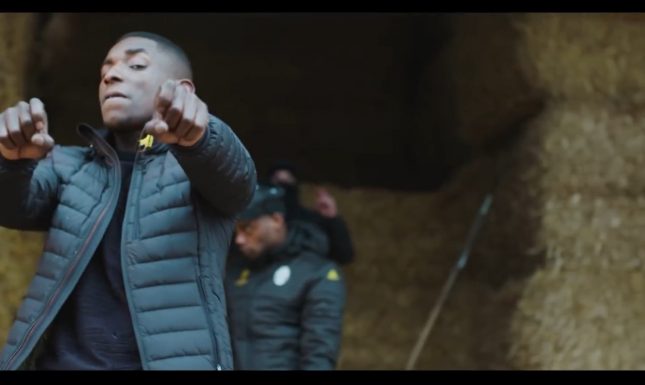
In both cultural artifacts, this process is actively linked to the American hit series Breaking Bad (2008), which mythologized the story of drug lord turned underdog Walter White. Hollands Hoop, which was called "the Dutch version of Breaking Bad" by its producers in De Volkskrant, refers to this series multiple times in its content but mostly through its premise. Just as White, a family man and chemistry teacher who one day accidently produces a very pure variant of the drug crystal meth, the protagonist of Hollands Hoop Fokke Augustinus stumbles into the world of drugs: he inherits the farm Holland’s Hoop in the North of Groningen, which turns out to house a large cannabis plantation that is part of an international drug network. Both White and Augustinus start leading a double life, as they get deeply involved in drug production. We also encounter a comparison between the protagonist and Walter White in the music video of Boerenjongen. Rapper D-Double identifies with White by rapping: "I push weights, not dumbbells, Heisenberg, I’m Walter",[3] referring to White’s real name Walter and his fake name Heisenberg, which he used during criminal activities. The music video shows someone wearing a mask of White’s face when D-Double raps this line, securing the youngster’s ‘secret’ and anonymous identity on the one hand, of which we get the impression that it is necessary because of the criminal circuit he’s part of, and on the other hand, stimulating the impression that the rapper not only figuratively uses the image of Walter White, but almost literally embodies him. The line emphasizes how D-Double lifts weights, meaning large packages with drugs, instead of dumbbells.
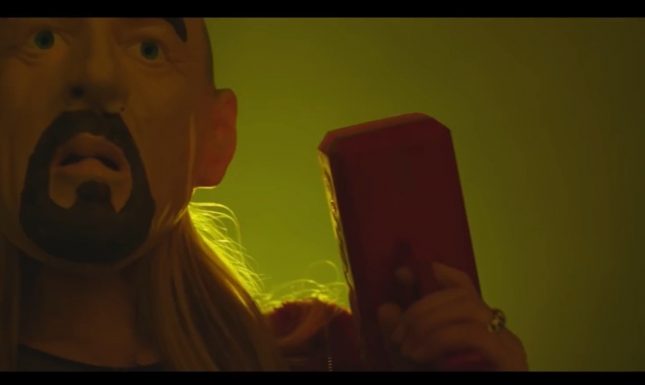
Boerenjongen and Hollands Hoop both build upon a quickly recognizable trope that has been globally popularized by Breaking Bad and ended up in the Dutch TV and rap scene: the unexpectedness of seemingly well-behaved men from quiet, abandoned, rural environments, who get involved in the dangerous and titillating world of drugs. For the rap group as well as for Fokke Augustinus, who both represent a rural area (which in a Dutch context often signifies a non-Randstad environment), the reference to Breaking Bad adds to a certain globalized street credibility while simultaneously increasing their rural authenticity and distinction from the Randstad ("I’m not from the Randstad, I’m a dealer from Hicksville")[4].
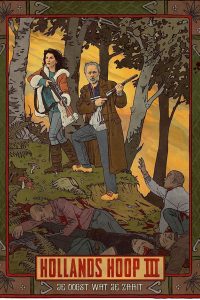

In many globalized cultural developments, intertextual references are recontextualized and appropriated on a local level, serving as a means to address specific, local concerns. Both the rap music and the television series use play and performance as well as extensive contrasts to create room for discussion and to express substantial social criticism. The Dutch focus of Boerenjongen and Hollands Hoop expresses their desire to say something about Holland: they are grounded in a distinctly rural geographical location. Whether it is done consciously or not, both draw attention to the socioeconomic and political focus on the Randstad, while the Dutch countryside deals with its own problems. As an alternative to addressing the production and distribution of crystal meth in the U.S. in the abandoned environment of Albuquerque, the rap music and the series emphasize the growing confrontation of Dutch regions such as the North of Brabant and Groningen with drug-related crime and the plantation and trade of cannabis. This is convincing because of the attention the narratives give to the attractiveness of the fast money of the drug scene for both farmers, who are enduring financial hardship, and young rappers, who aspire financial success and the higher social status that comes with it. The rap music and the television series show how the rural ‘underdogs’ of the Netherlands hustle their way through the countryside.
[1] "Boerenjongen, kan je harken."
[2] "Verkoop cocaïne aan de buren."
[3] "Ik push gewichten geen halters, Heisenberg, ik ben Walter."
[4] "Ik ben niet van de Randstad, een dealer uit een boerengat’."
Works cited
D-Double ft. Pietju Bell, “Boerenjongen”. YouTube video, 0:36, 2:08, 2:44, Posted 23 Februari 2018.
Hollands Hoop. Lemming Film, in co-production with VARA, NTR, VPRO.
D-Double ft. Pietju Bell - Boerenjongen© Aafje de Roest and Leiden Arts in Society Blog, 2020. Unauthorised use and/or duplication of this material without express and written permission from this site’s author and/or owner is strictly prohibited. Excerpts and links may be used, provided that full and clear credit is given to Aafje de Roest and Leiden Arts in Society Blog with appropriate and specific direction to the original content.


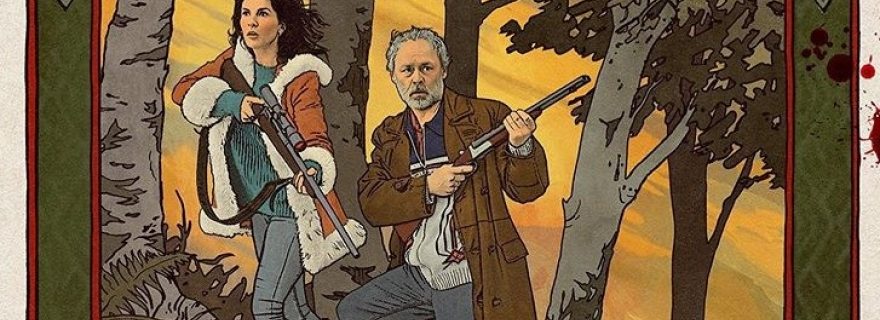
0 Comments